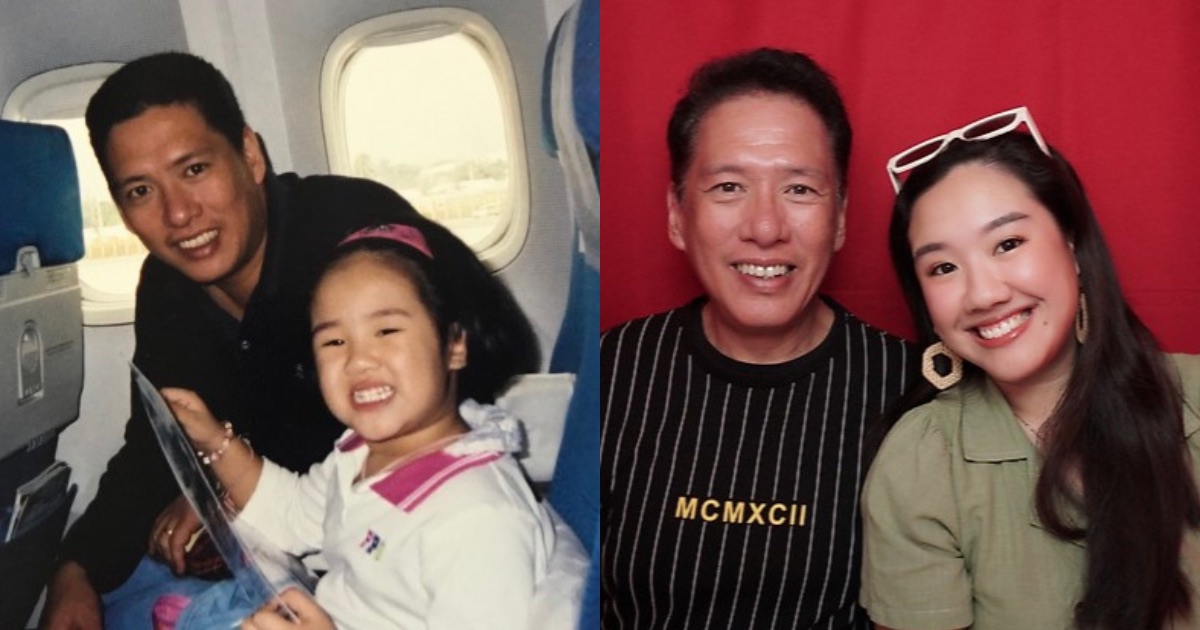‘Daddy issues’ no more: Here’s how Gen Z can break the curse
Every week, PhilSTAR L!fe explores issues and topics from the perspectives of different age groups, encouraging healthy but meaningful conversations on why they matter. This is Generations by our Gen Z columnist Angel Martinez.
I grew up with what I call “reverse daddy issues”—this persistent, perhaps naïve belief that there must be more men like my dad out in the world. Mine is the rare provider who is also present: affectionate, attentive, and attuned to his emotions. I can tell him absolutely anything, with full confidence that he’ll forever be in my corner through it all. Hopefully, he knows that very few things bring me more joy than listening to him wax nostalgic about his colorful career trajectory or share interesting snippets about his historical hyperfixations. (Of course, all while Peabo Bryson plays softly in the background.)
In an ideal world, this is something that all children grow up with and get to love. But unfortunately, it is far more commonplace to hear of fathers who fail at family life. We can refer to hard statistics, for example, like how an overwhelming 95% of the 15 million solo parents in the country are women; or to media such as superhero movies, Sex and the City, and even Sabrina Carpenter songs. Heck, most of us just have to look in our own homes.
Such a dilemma isn’t even distinct to us members of Gen Z. Paternal absence, whether physical or emotional, leaves scars on anybody regardless of age. Tricia Zafra, clinical psychologist and professor at the University of the Philippines, explains this through the lens of evolutionary psychology: “Women bear the physical and mental cost of childbirth, and this may have historically led to deeper emotional investment in children. Over time, this contributed to norms that framed men more as providers than nurturers,” she tells PhilSTAR L!fe.
Consequently, Zafra mentions that heads of the household feel that they’ve fulfilled their duties to their families, as long as they put food on the table. But this could lead to fathers who are stern, sometimes to the point of emotional constipation, and generally uninterested in their kids’ attempts to navigate their identities and negotiate their place in society. Some of us rarely hear our dads speak, but when they do, it’s to espouse problematic politics or backward worldviews.

Such men who hold flawed notions of masculinity are conditioned to behave accordingly as early as childhood. “The enduring belief that boys are somehow diminished or emasculated by tenderness, compassion, or emotional nurturance is rooted in traditional gender expectations that demand stoicism from men,” sociologist Alicia M. Walker tells The Atlantic. It’s these same societal standards that allow men to leave their families for whatever internal issues they’ve projected onto them with only a light slap on the wrist.
And while our generation may be willing to break the curse, there are some in today’s dating scene that are unqualified to be tomorrow’s fathers. Despite increased awareness around toxic masculinity, we still enforce the same gendered stereotypes that keep men from being truly vulnerable. The male loneliness epidemic exists for a reason: even in relatively more progressive countries like the United States, one in every four of those younger than 30 report they have no close friends and can’t reach out to anybody for help. This social isolation, coupled by increasing screen time, is what forces more and more young boys into the manosphere, where they find purpose in blaming and punishing women.
If we want to do right by our future families, the dirty work has to start soon. Parents today, some of whom are already my age, can look at the way they’re interacting with and raising their sons. In a CNN article, pediatrician and author Dr. Shelly Flais suggests that parents take a look at how they interact with their sons. Are our conversations laden with orders? Is there any room to discuss their everyday lives, or their interior emotions? Are parents meeting their kids where they are, and allowing them the space to be vulnerable and passionate? Such conditions are crucial: As Zafra points out, “those who find themselves ready or choose to become fathers of tomorrow will have the chance to redefine what this role means.
Those who aren’t at that stage yet can start asking themselves if they even want to be a father. This could also mean coming to terms with the trauma they might have from their own paternal relationships, and turning it into something constructive: “Yes, a child can feel that they lack something when they don’t have a father, and this feeling is not only normal but valid,” Zafra says.

Some find relief in mentally absolving them of their sins without ever reaching out, while others have seen success in reconnecting and repairing long-severed ties. But as Zafra advises, their absence also presents a challenge to us to develop the values we needed them to exhibit. “Having a sense of responsibility, commitment, and empathy will help us develop emotional maturity and choose a fulfilling path in life.”
I remember the case of Raphael, my best friend’s boyfriend. His father was the “reserved type, who was always ambitious and prioritizing making a living for the family, which sadly caused [his parents’] separation.” But rather than dwell on his shortcomings, he’s inspired by his father’s good traits: “I also want to use my own experience with my dad as inspiration, so that my future children wouldn’t go through the hardships that I had to go through before,” he tells L!fe.
Once men have sorted out within themselves that they do want to be fathers, they need to figure out what kind they want to be. “It’s not just a matter of whether they’re ready for the financial aspect, but also the emotional responsibility of being a parent. This is a lifetime commitment that requires them to open their hearts and possess a level of self-awareness,” Zafra warns.
It may be scary to think about for too long. Aren’t we all afraid of messing up our families’ lives to some unforgivable degree and continuing some cursed chain reaction of events? But I think it’s worth remembering that kids don’t demand perfection from their parents. I know I didn’t and still don’t: My dad comes with his own set of acceptable foibles and faults. But he’s there. He shows up for me especially when things get hard, and loves me enough to carry me through it all. That is more than any child could ever ask for, and exactly what every child deserves.
Generations by Angel Martinez appears weekly at PhilSTAR L!fe.



